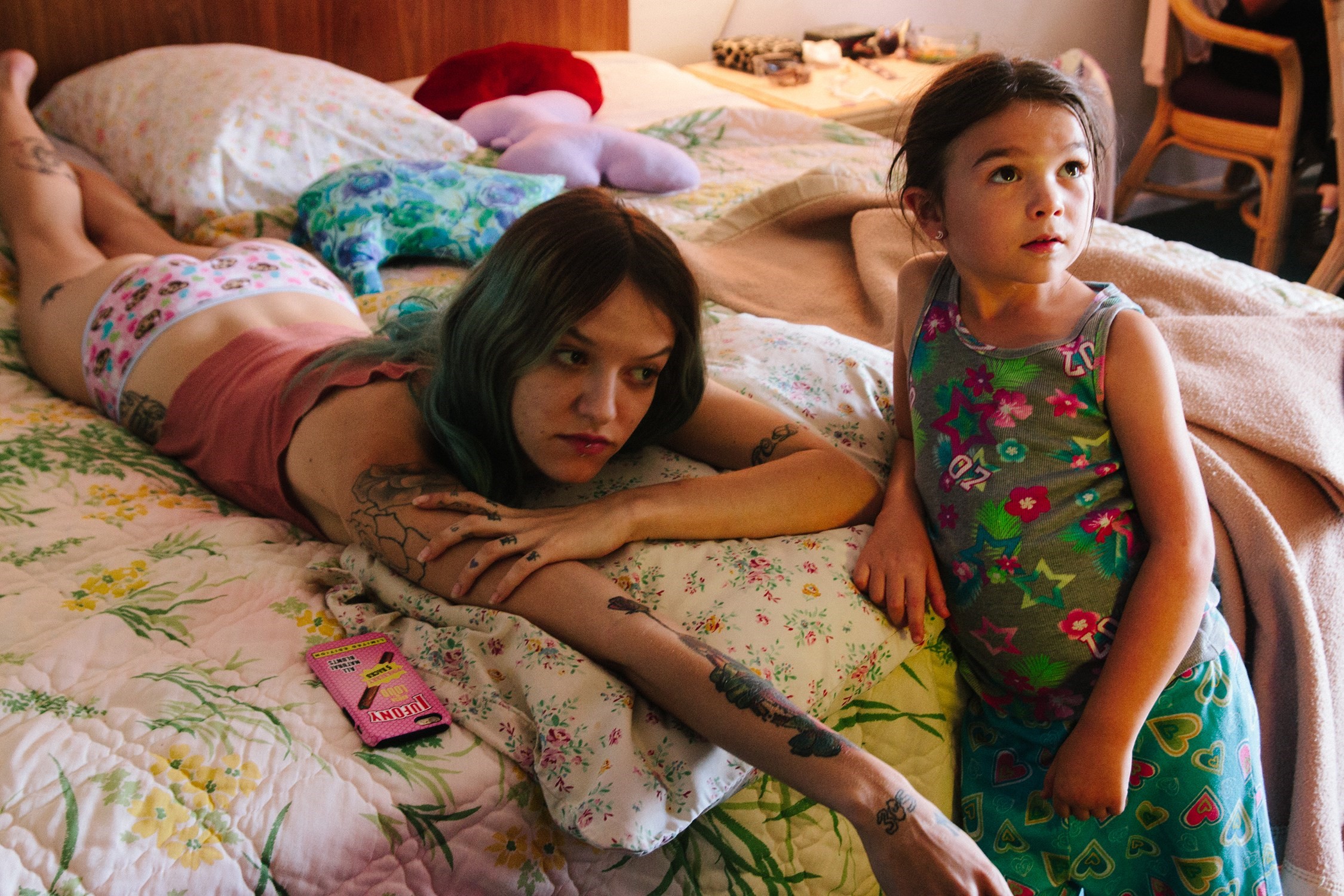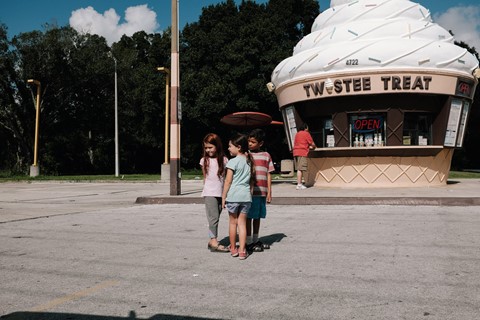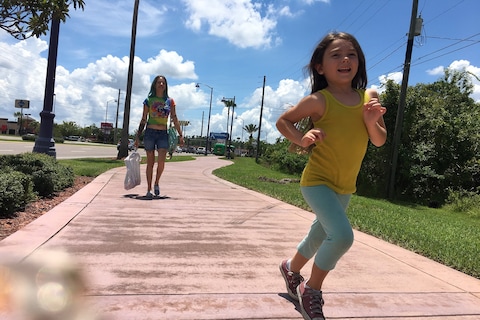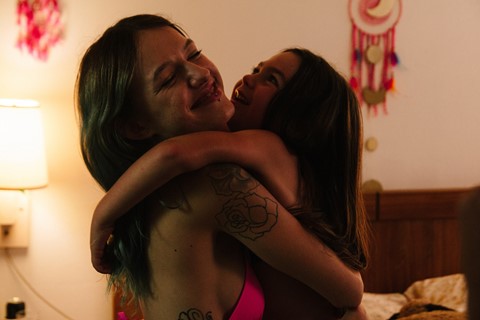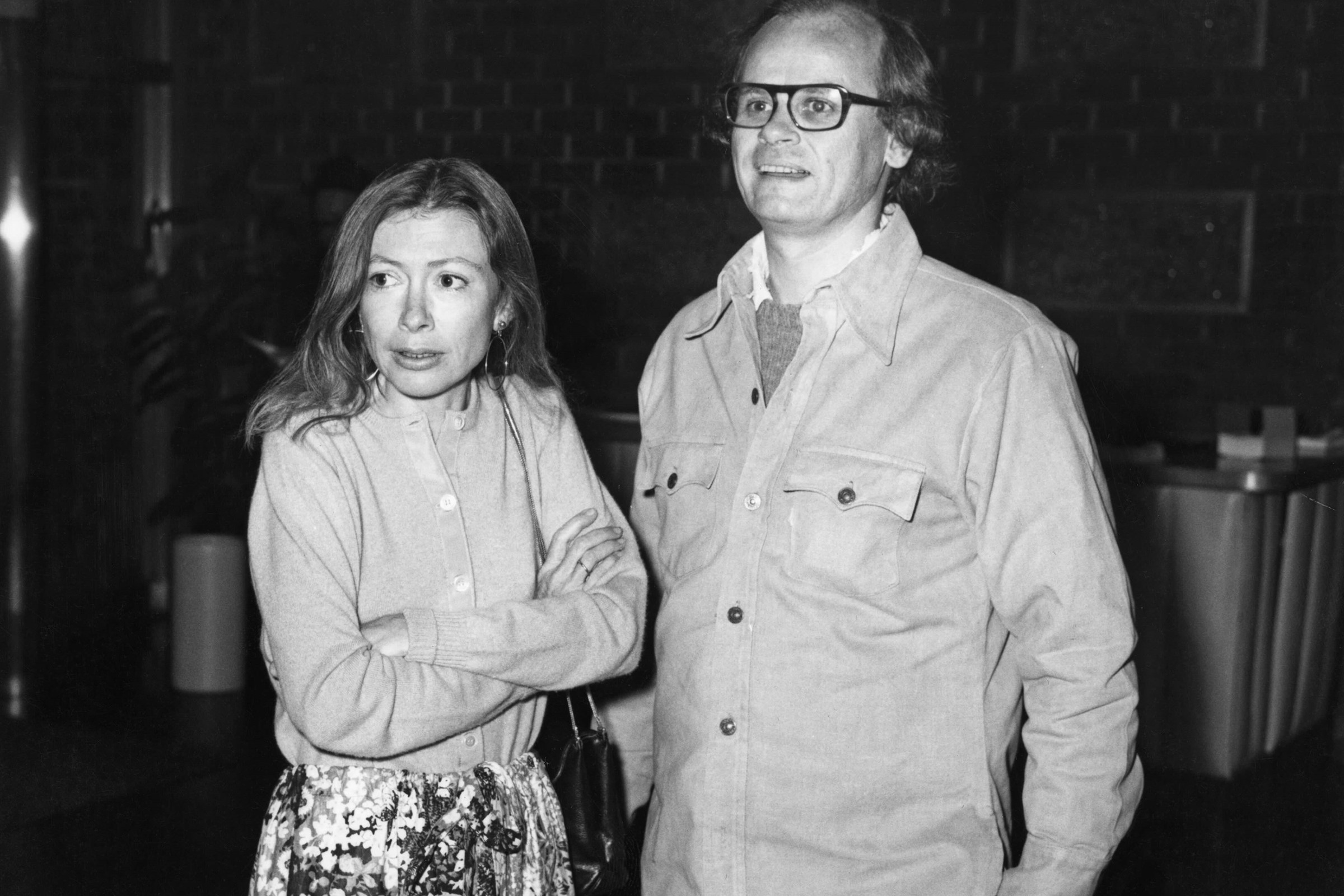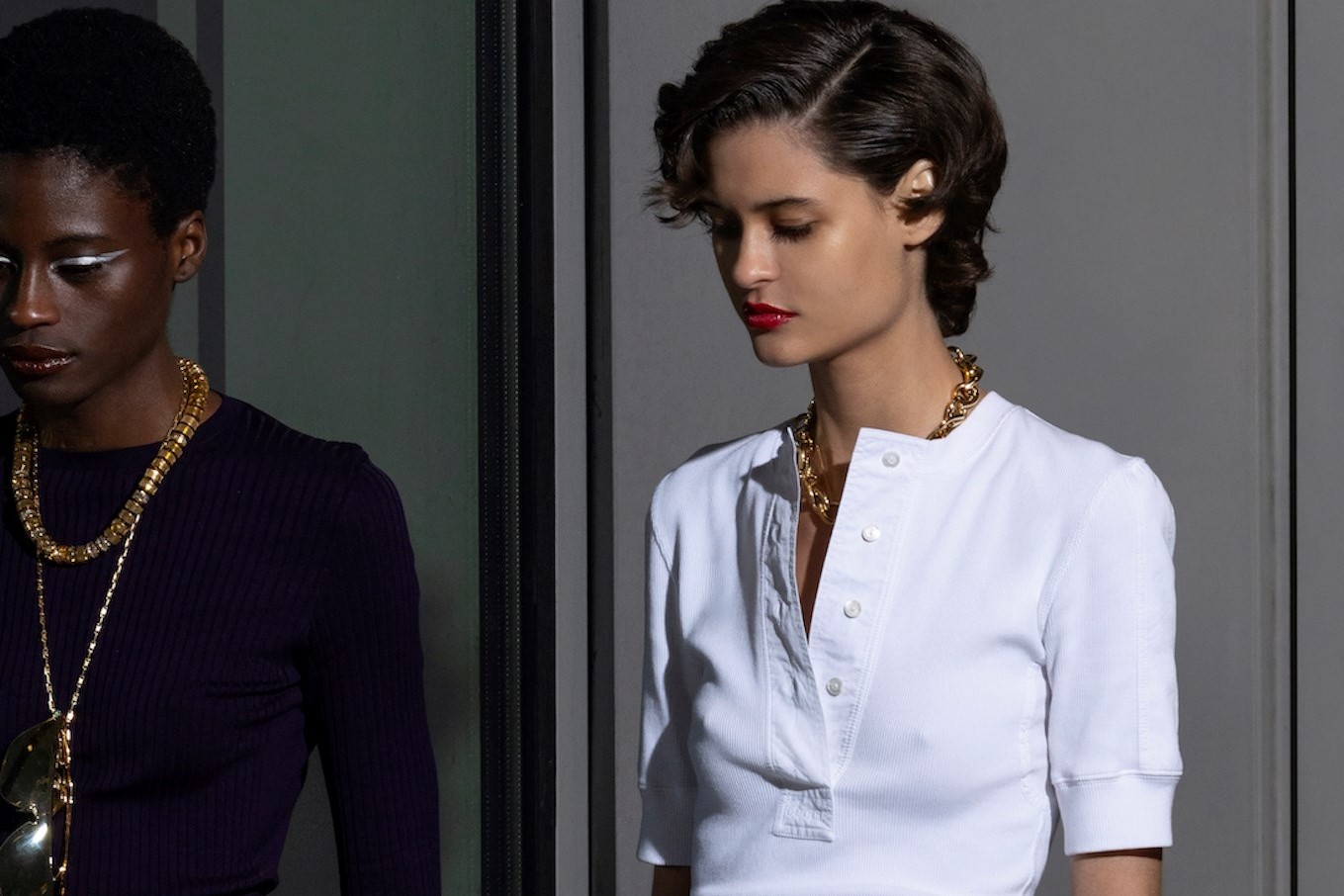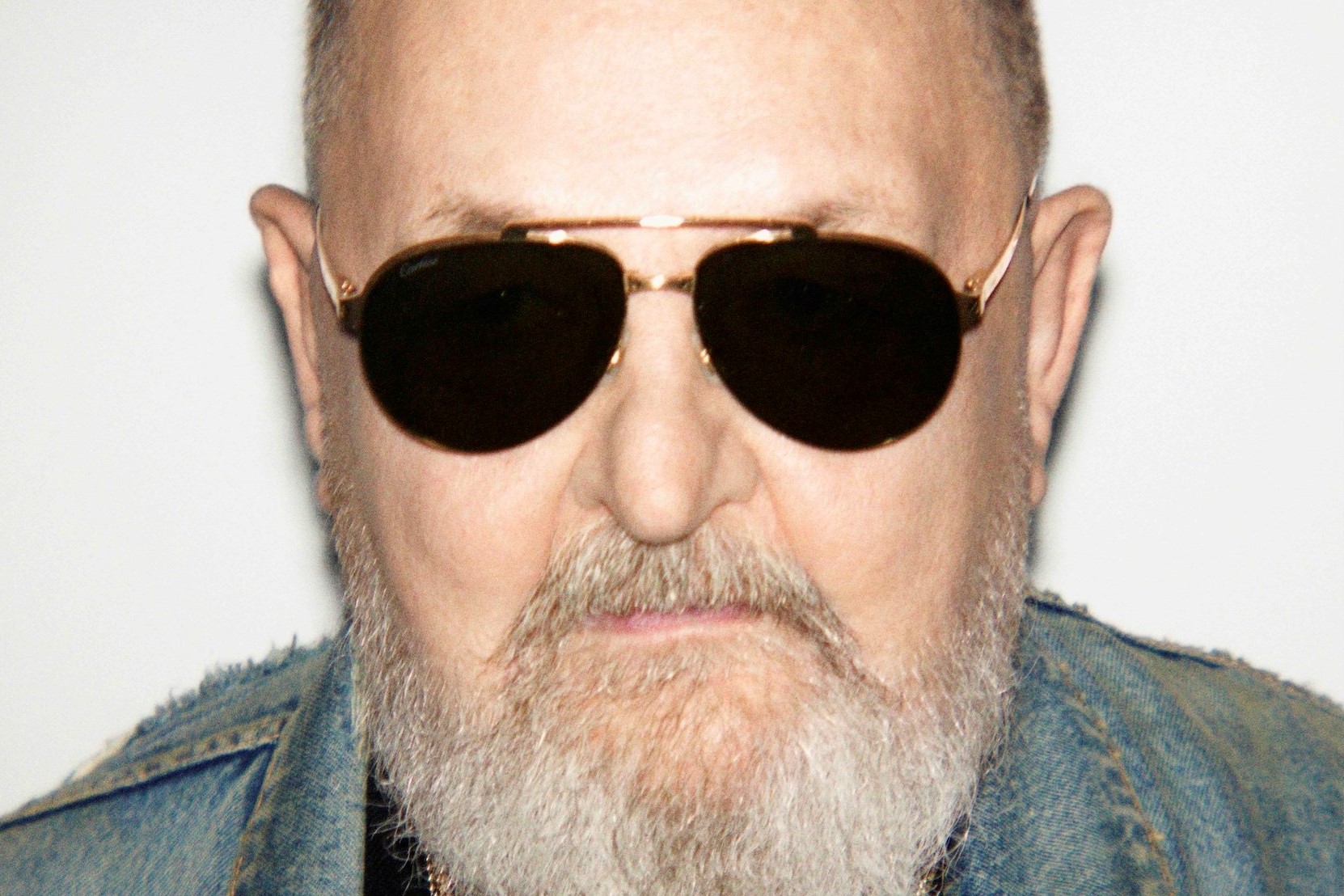Disney World, as every good child of the 80s knows, is the place where dreams are made. But what does life look like beyond the castle walls? Sean Baker gives us answers in The Florida Project, a riotous tale of kindergarteners gone bad at an extended-stay motel in Orlando. It’s a fucked-up fairytale ode to forgotten America from the New Jersey director, who’s been shining a light on the parts of society deemed unfit for big-screen consumption for more than a decade now. In 2004’s Take Out, it was illegal Chinese immigrants living in New York. In his breakout Tangerine, shot in three weeks on an iPhone at the end of 2013, it was transgender sex workers in Los Angeles. In The Florida Project, it’s that avenging spectre of the modern political landscape, the white working classes, struggling to make ends meet in the shadow of the world’s most famous gated community. (The film takes its name from the working title given to Disney World before the park’s opening in 1971.)
“I think my films are a response to what we don’t see in American cinema,” says Baker of his work. “We don’t have people like Ken Loach and Mike Leigh in the US – we have some, but they’re not as well-known as the directors working in that wheelhouse in the UK. When there are marginalised communities that I’m focusing on, sometimes it’s because of the issue, sometimes it’s the location, sometimes it’s a community I feel is very unrepresented and I’m interested in sharing a story. Ultimately the way I look at it is that the more stories there are focused on these marginalised groups, the less marginalised they’ll be.”
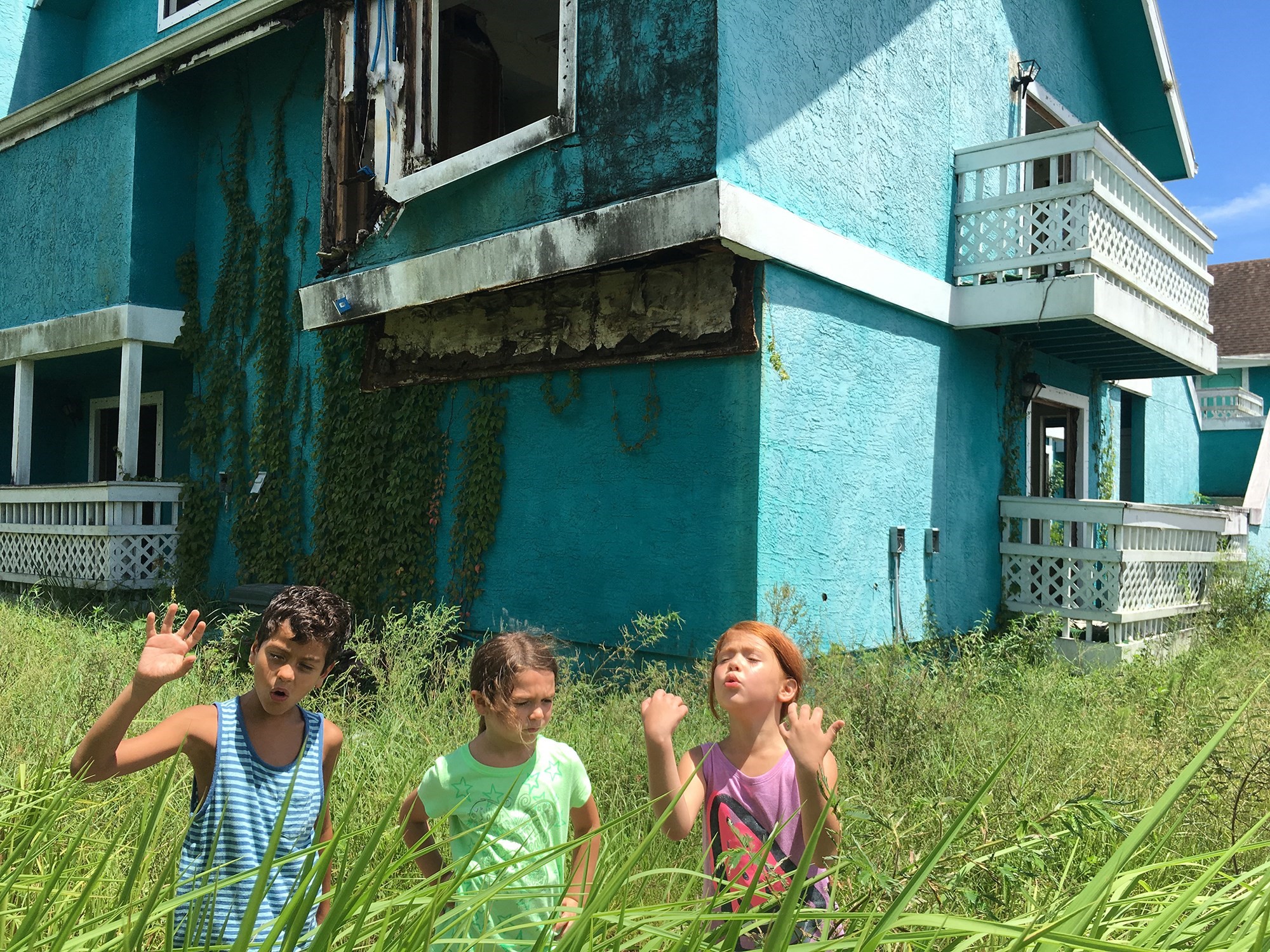
For his latest project, Baker brings sun-splashed surrealism to a subject that might have otherwise made for bleak viewing – the epidemic of ‘hidden homelessness’ forcing hard-up families into motels because they can’t afford regular rental properties. “I’d always wanted to make a film about children,” he says of the film, a kind of thugged-out take on Kids Say the Darndest Things. “I’ve been very inspired over the years by The Little Rascals – these comic shorts from the 20s and 30s about the adventures of young children, often directed by the same directors who worked with Laurel and Hardy. These films were set against the Great Depression, about kids who were living in poverty, but it was all about the humour and the universality of childhood. Then my co-screenwriter (Chris Bergoch) brought this topic to my attention, where you have kids growing up in motels outside a place designed as the happiest place on earth for children. I saw it as my opportunity to make a present-day Little Rascals and approach it in a way that put a human face on (homelessness). Because I want the audience to love these kids and feel like they’re one of them.”
“I saw it as my opportunity to... put a human face on [homelessness]. Because I want the audience to love these kids and feel like they’re one of them” – Sean Baker
Baker succeeds thanks to some knockout performances from his young cast, led by Brooklynn Kimberly Price as the adorably foul-mouthed Moonee, and a fine supporting role from Willem Defoe as the motel’s manager and de facto father figure for the kids. He also makes great use of a psychedelic visual palette which allows us to see how this crumbling concrete neverland might look like a fantasia to a six-year-old child. It’s a neat trick that allows Baker to give us both the fantasy that Florida sells to tourists and the reality for many of the people living there – a grimly comic double-take captured in a scene where a pair of Cuban newlyweds arrive at Moonee’s motel, the Magic Castle, having mistaken it for Disney’s Magic Kingdom online. “She’s gonna cry soon,” says Moonee of the furious bride as the scene unfolds. “I can always tell when grown-ups are about to cry.”
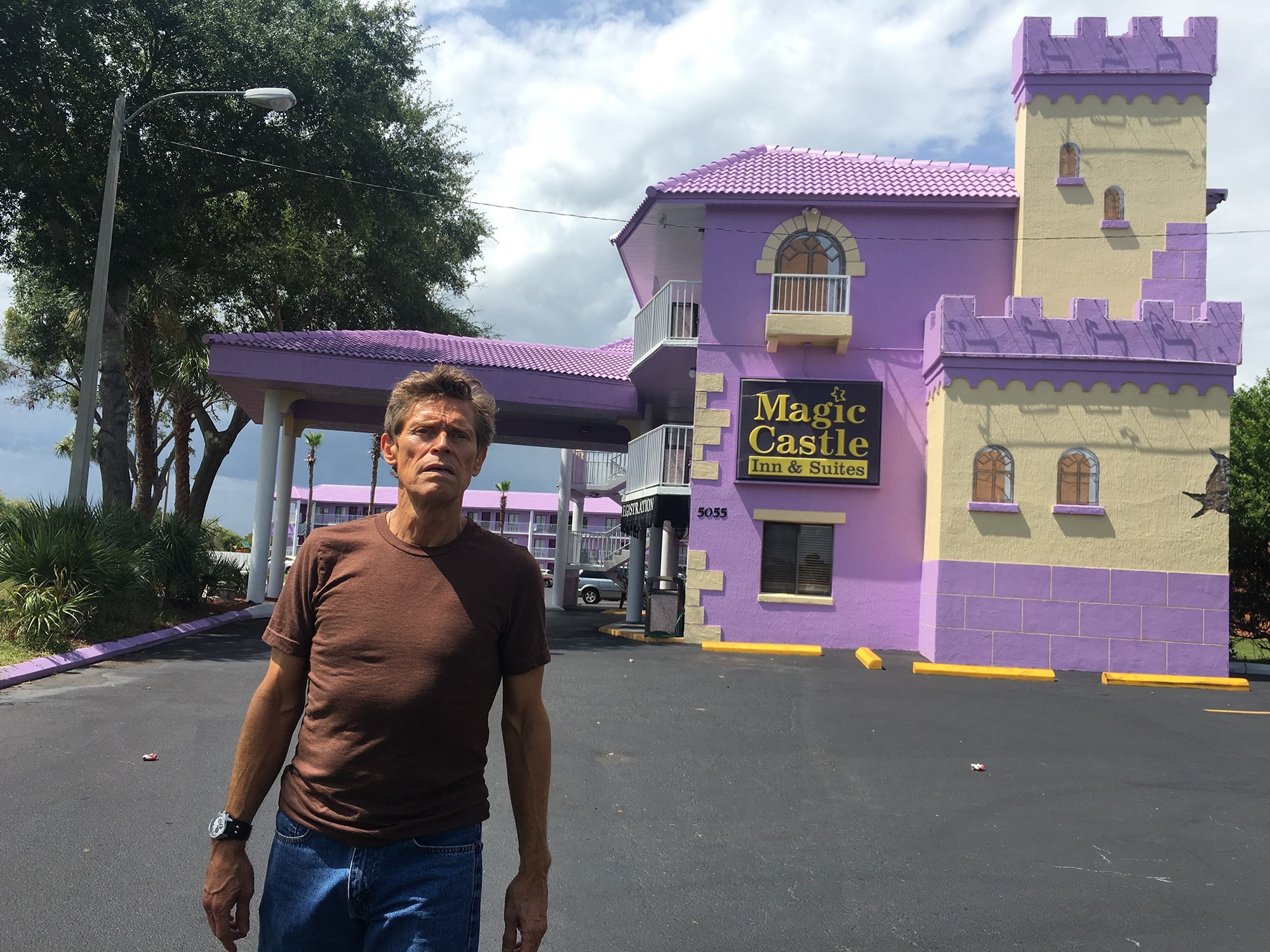
America, as Baker points out, lacks a strong tradition of class-conscious cinema to rank with the kitchen-sink dramas of the UK – an echo, perhaps, of the country’s deep-seated mistrust of socialism. But with social divisions widening and a collapsing middle class that’s opened the door for Trump-style populism, marginalised communities need to be heard more than ever in the States. For Baker, the question for filmmakers looking to tell these stories is one of approach. “I think often (these kinds of stories) are approached as a ‘plight’ films in the US, which definitely alienates people, because the people who are actually living in those situations don’t want to see it,” he says. “We have to remember that cinema started as an entertainment medium, and it becomes what is now called poverty porn if it’s just a look at a community that is so drenched in melodrama and done in a way that isn’t appealing to somebody who is actually seeking entertainment. There just hasn’t been a demand for it by US audiences. They want popcorn fare, they want Transformers bashing the hell out of each other for no reason whatsoever (laughs), so I think that the reason why this film or maybe my previous film, Tangerine, might appeal to some audiences is because we are presenting it in an entertainment package. It is comedy, the intention is to make you laugh, then make you think.”
“It is comedy, the intention is to make you laugh, then make you think” – Sean Baker
It’s a philosophy that’s echoed in the work of Taylor Sheridan, a Texan rancher-turned screenwriter and director whose scripts for Hell or High Water (2016) and Wind River (2017) deliver probing examinations of rural American malaise wrapped in sturdy genre thrills. “I don’t like being lectured to when I go to the movies, and I don’t imagine other people do either,” he told Rolling Stone this year. “I’m here to entertain… But I want people leaving the theatre with something to think – and think hard – about.” Baker, meanwhile, cites Jordan Peele’s Get Out as another example of this Trojan horse school of socially conscious filmmaking: “It’s a horror-comedy, but it also addressed issues of race and race relations, and it brought it in such a subtle, beautiful way that audiences engaged; it sold out movie theatres. It delivers a social message in a really mature way, because it uses entertainment to deliver it.”
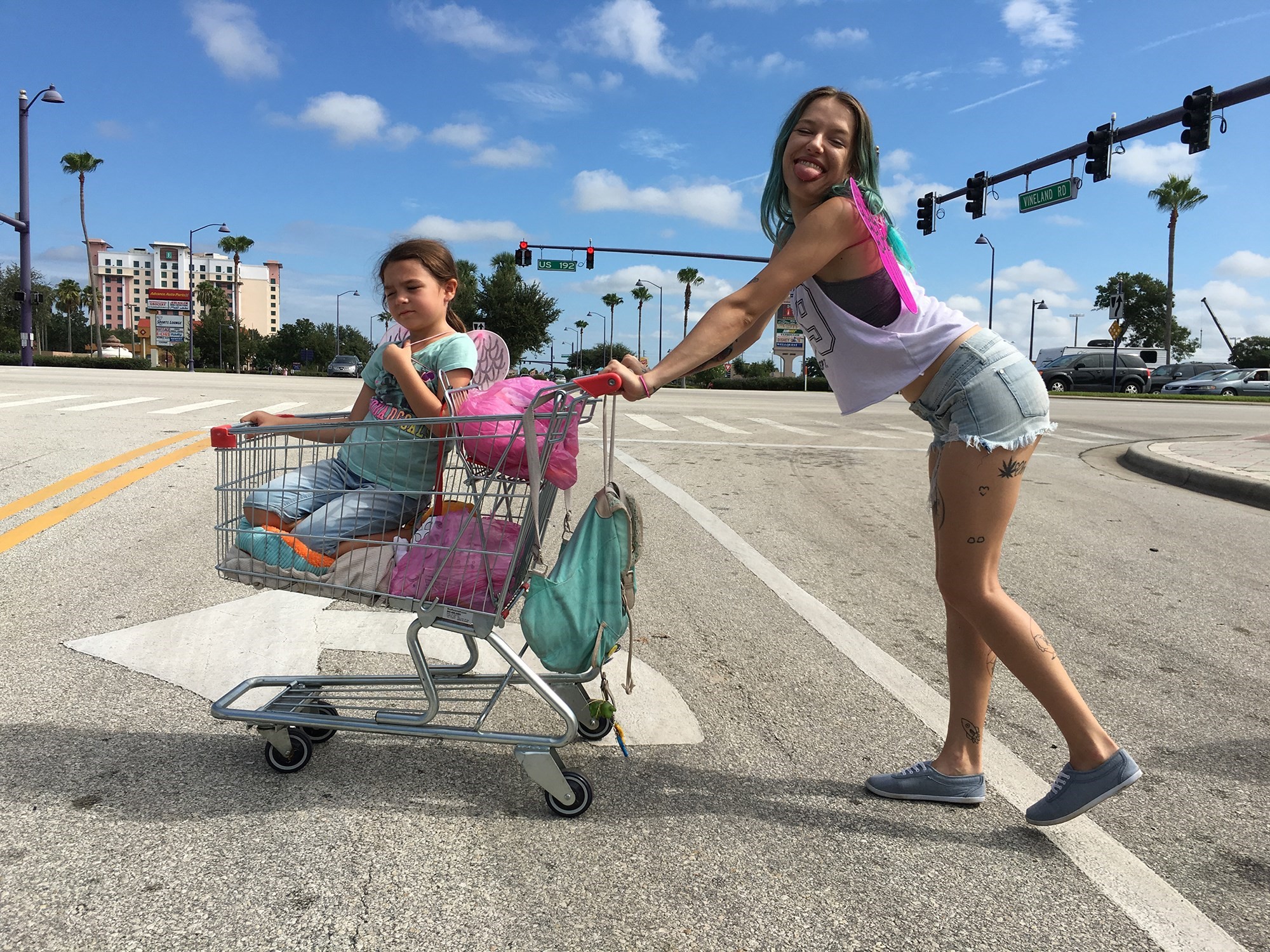
Away from genre fare, there are other signs that Hollywood’s conscience may finally be stirring when it comes to people all too often written out of American narratives. American Honey (2016), Andrea Arnold’s freewheeling ode to a bunch of runaway kids finding kinship on the road with a magazine sales crew, was directed by a Brit, but shares with The Florida Project a clear-eyed empathy with its young cast, led by first-timer Sasha Lane. “There is this idea of looking for beauty in the midst of people that... are not normally considered in life as anything worth looking at, or worth exploring,” said Lane of the film, basically a modern-day The Grapes of Wrath with a trap-rap soundtrack. “It was this part of America that I knew very well, and I thought, ‘Yeah, that needs to be shown, and I think that’s amazing.’” Kelly Reichardt’s Certain Women (2016), while not a film about the underclass as such, offers piercing insights into parts of rural America often caricatured by the media. “I think we’re all trying to understand small-town America, and I think we must,” says actress Laura Dern of her part in the film as a jaded lawyer. “I feel like, as artists, it’s an exciting time for you to write about it, for me to act, for all of us to consider, what does it feel like to have a life that looks like this?” Reach a bit further back, and you’ve got Beasts of the Southern Wild (2012), which takes a magic-realist brush to poor communities in the Louisiana bayous, and Winter’s Bone (2010), a brooding portrait of the devastation wrought by meth addiction on a Midwestern community that ranks among the more sensitive depictions of modern Appalachia to grace the screens in recent years.
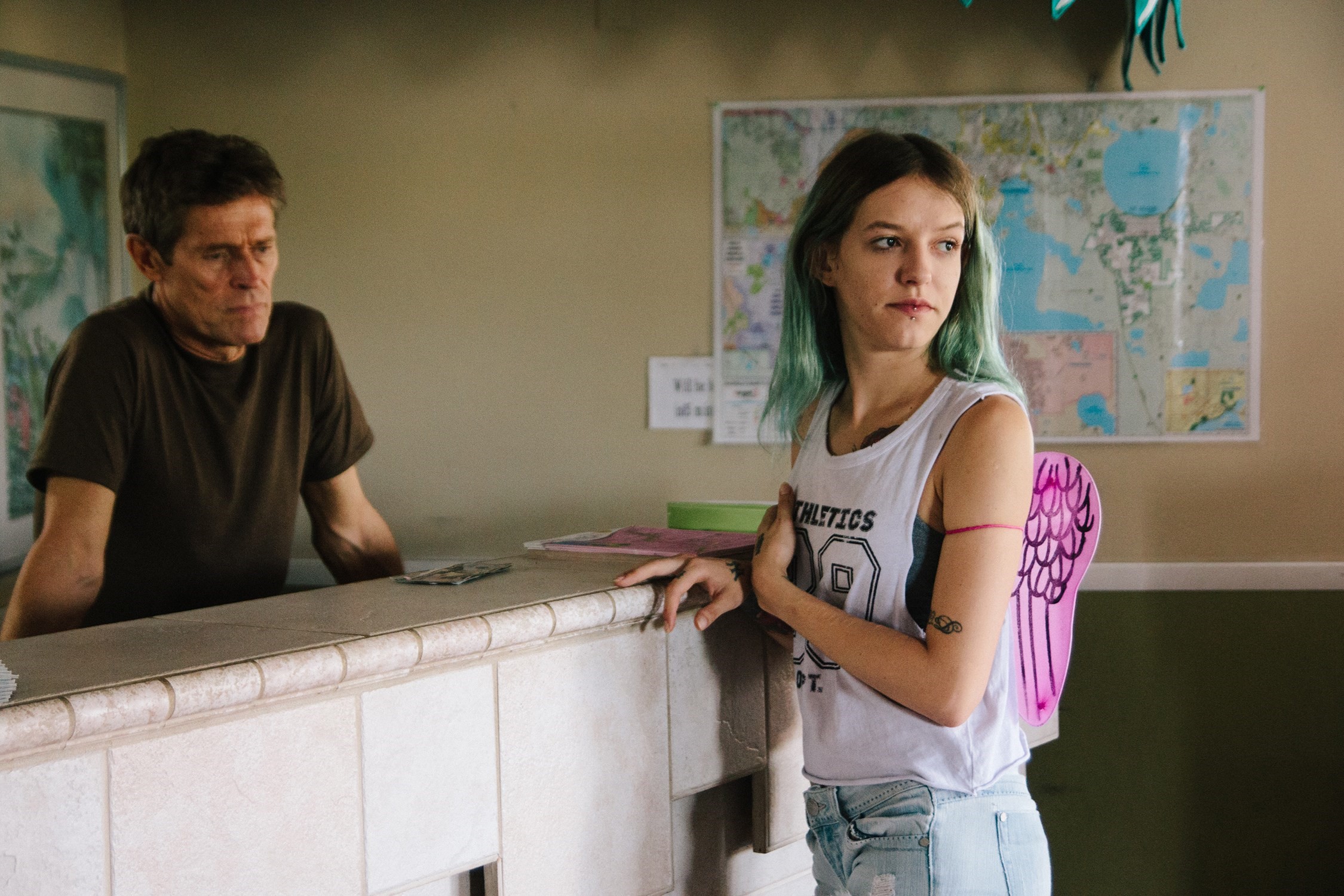
Despite its warmth and humanity, there are moments in The Florida Project – the ending, especially – that suggest a darker reading of the film is also possible. Is America too far gone into fantasy, the film seems to ask, to stare reality in the face? Baker, at least, sounds optimistic for the future of socially engaged cinema in the US. “I think we are starting to do it, in a weird way,” he says. “I’m never gonna say it’s a responsibility, but it is nice to see filmmakers take a socio-political approach to their filmmaking. We’re living in troubling times, and, yes, we still need entertainment. But why not use our entertainment in a way that helps?”
The Florida Project is out in cinemas now.
